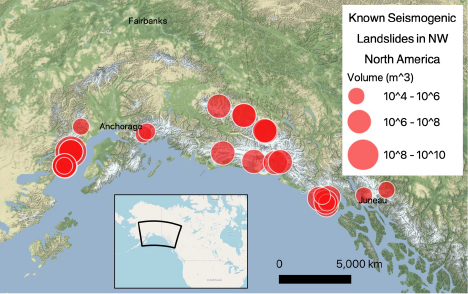IGPP is pleased to invite you to join its Winter 2022 Seminar Series presentation featuring USGS's Kate Alstadt. Dr. Alstadt's talk, "Why use seismology to study landslides and debris flows?" will be available via Zoom on Tuesday, March 1, 2022, starting at 12:00pm. Zoom: https://zoom.us/j/95796502834?pwd=UDZxUE5jZklPNE95U2hWM0J3dzVxZz09. Password: lahar

Time: 12:00 pm, Pacific Time
Location: Zoom
Note: This meeting will be recorded. Please make sure that you are comfortable with this before registering.
Abstract: Landslides, debris flows, lahars and other mass movements generate seismic signals that contain valuable information about the event as it unfolds. The incorporation of seismic analysis into more traditional investigations of surface mass movements can add a new dimension to our understanding of event dynamics and the hazards these events pose. However, successfully harnessing the seismic wavefield to make scientific advances requires that we understand what information is actually contained in the observed wavefield and also that we have the means to reliably extract it. Though this subdiscipline of seismology is only a few decades old, the research community is making progress toward establishing the theory, models, and methods required to use seismology to make quantitative observations and for monitoring and early warning systems, but many outstanding challenges remain. I will touch on a series of projects the USGS and collaborators are working on to make progress on this front, covering many scales from the very small (large-scale seismic experiments at the USGS debris flow flume) up to the very large (massive volcano flank collapses and tsunamigenic landslides). I will also discuss bigger picture motivations for the pursuit of landslide seismology, such as the search for reliable precursors and early warning systems.
